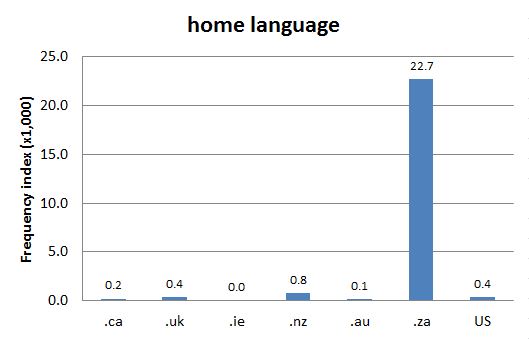DCHP-2
home language DCHP-2 (July 2016)
n. — Administration
the primary language spoken in someone's home.
Type: 4. Culturally Significant — Home language refers to "the language spoken most often or on a regular basis at home by [an] individual" (see Statistics Canada: Census Dictionary reference). Because of Canada's cultural diversity, researchers and governmental policy-makers supported the polling of Canada's home languages that has taken place since the 1971 census, though the term was in use long before then (see the quotations). As of the 2011 census, over 200 different languages were cited as a "home language or mother tongue" (see Statistics Canada: Linguistic Characteristics of Canadians reference). Data from the 2011 census also indicates that approximately 18% of Canadians noted that they spoke two languages at home while around 14% of the population listed a language other than English or French as their home language.
As Chart 1 shows, the term is much more frequent in South Africa (.za) and, with a considerable gap, in New Zealand (.nz). Even in the US and in the UK, the term is more widely used than in Canada. Home language is therefore Canadian because of its institutional backing, while the term has not entered general language use as widespread as elsewhere.See also: heritage language immigrant language official language Aboriginal language
References:
- Statistics Canada "Census Dictionary - Home language" Accessed 14 Jul. 2015
- Statistics Canada "Linguistic Characteristics of Canadians" Accessed 14 Jul. 2015
Images:
Chart 1: Internet Domain Search, 28 Jun. 2016
